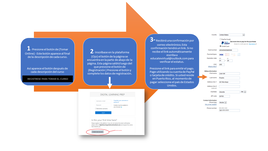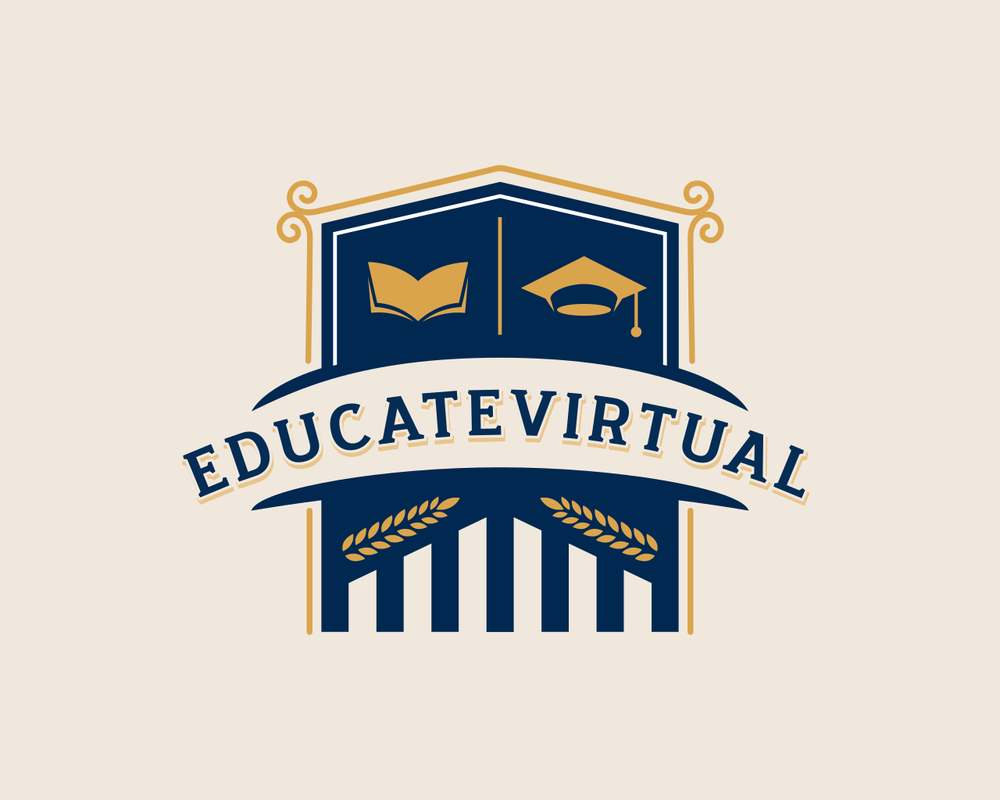|
|
REPASOS DE REVALIDAS DE PUERTO RICO, ESTADOS UNIDOS Y CURSOS ONLINEEste espacio educativo no se rige por las barreras físicas de un salón de clases, ni por el tiempo como factor regulador. Nuestro ambiente proporciona la oportunidad de desarrollar programas y alternativas educativas reales a individuos y/o a empresas que necesitan de cursos y repasos, que por medio de un aula tradicional, no podrían recibirla; o que resultaría muy costoso lograr sus metas educativas. |
Que ofrecemos?
Bienvenido a Educatevirtual tu destino para cursos y repasos online. Ya sea que estés buscando mejorar tus habilidades profesionales, prepararte para un examen importante o simplemente aprender algo nuevo por diversión, ¡estás en el lugar adecuado!
Explora nuestra amplia gama de cursos impartidos por expertos en diversos campos. Desde adistramientos hasta marketing repasos de reválida y algo para todos. Nuestro enfoque centrado en el estuduante y la flexibilidad de horarios te permiten aprender a tu propio ritmo y desde cualquier lugar.
Explora nuestra amplia gama de cursos impartidos por expertos en diversos campos. Desde adistramientos hasta marketing repasos de reválida y algo para todos. Nuestro enfoque centrado en el estuduante y la flexibilidad de horarios te permiten aprender a tu propio ritmo y desde cualquier lugar.
|
Cursos:
Descubre una variedad de cursos diseñados para satisfacer tus necesidades de aprendizaje. Desde cursos introductorios hasta programas avanzados, ofrecemos contenido de calidad que te ayudará a alcanzar tus objetivos. Ya sea que desees mejorar tus habilidades técnicas, desarrollar tu creatividad o ampliar tus conocimientos en un área específica, encontrarás opciones para cada inte |
Repasos:
¿Necesitas prepararte para un examen importante? Nuestros programas de repasos te ayudarán a revisar y consolidar tus conocimientos para asegurar el éxito en tus evaluaciones. Con recursos prácticos, exámenes simulados y tutoriales personalizados, te ofrecemos todo lo que necesitas para sentirte seguro y preparado el día del examen. |
En Educatevirtual, creemos que el aprendizaje nunca debe detenerse. Nuestra misión es proporcionarte acceso a servicios educativos online de alta calidad que te permitan alcanzar tus metas académicas y profesionales desde la comodidad de tu hogar o cualquier lugar donde te encuentres.
|
|
Métodos de Pagos, Paypal, VISA, MASTERCARD, AE, DISCOVERY
Al momento de emitir el pago le va a salir como opción principal pagar con paypal. Si usted no tiene paypal seleccione otro método y luego saldrá la opción de tarjetas de créditos. Si necesita asistencia puede escribir a [email protected] |
|
REPASOS PARA PROFESIONALES DE LA SALUD EN PUERTO RICO En Eductevirtual, nos dedicamos a ofrecer los mejores recursos de estudio y estrategias de repaso para profesionales de salud que buscan aprobar su reválida en Puerto Rico. Entendemos la importancia de esta certificación en tu carrera profesional y estamos aquí para asegurar que recibas la preparación más completa y efectiva.Inscríbete Hoy y Da el Primer Paso Hacia el Éxito en Tu Reválida
No dejes pasar más tiempo. Inscríbete en uno de nuestros cursos de repaso y acércate a la meta de continuar tu carrera profesional en el campo de la salud en Puerto Rico. Visita nuestra sección de inscripciones o contáctanos directamente para más información. |

|
REPASOS PARA REVALIDAS DE PROGRAMA TECNICOS EN PUERTO RICO Prepárate para tu examen de reválida con los expertos más confiables de Puerto Rico. En Educatevirtual, ofrecemos cursos de repaso diseñados específicamente para técnicos en diversas áreas, asegurando que recibas la preparación más completa y actualizada.
|
CURSOS ONLINE |
Cada adiestramiento le presenta la oportunidad para avance y desarrollo profesional en Puerto Rico y Estados Unidos. Luego al tomar el curso, usted podrá hacer el examen online, e imprimir su certificado. La capacitación es nuestra prioridad, por lo que usted tendrá la oportunidad para educarse sin salir del hogar o lugar de empleo.
No importa si está en Puerto Rico, Latino América o en Estados Unidos; adiéstrate con uno de nuestros seminarios en línea en cualquier lugar y a cualquier hora. Educatevirtual es tú alternativa al momento de obtener adiestramientos online en Puerto Rico. Educatevirtual cuenta con los mejores recursos en cada materia. |
UNITED STATES EXAMS
STUDY GUIDES



|



|
|
DIGITAL LEARNING SOLUTIONS
|
|
Our mission is to provide organizations and institutions the most comprehensive digital learning solutions to help mitigate the inflated costs associated with training and continuing education. We are committed to providing customized solutions that are based exclusively on the needs articulated by the client. Our company was founded in Boise, Idaho, and since inception we have grown to a nationwide provider of digital learning solutions. |
Educatevirtual LLC fue fundada en Boise Idaho. Edcatevirtual provee curso y adiestramientos online y repasos en Puerto Rico y Estados Unidos. Educatevirtual ofrece desarrollo de plataformas educativas y servicios en educación digital. Además, da oportunidad a instructores de impartir cursos, repasos y charlas a través de nuestra plataforma educativa. Educatevirtual está afiliada a Mometrix Text Preparations, líderes en preparación de manuales para exámenes y certificaciones de los Estados Unidos. Nuestros repasos son completamente interactivos. Nuestros repasos tienen bancos de preguntas, simulaciones de exámenes, manuales de estudios actualizados. Educatevirtual ha preparado a miles de estudiantes para sus exámenes de reválida en Puerto Rico y Estados unidos. Nuestra misión es que los estudiantes puedan ejercer sus profesiones en Puerto Rico y en los Estados Unidos. Educatevirtual provee las herramientas para que los estudiantes puedan preparase de una manera efectiva. preparación para el examen de reválida de enfermería en PR, tutor de repaso de contabilidad Puerto RicoR, repaso intensivo de reválida de derecho en PR, estrategias de estudio para reválida en Puerto Rico
|










































